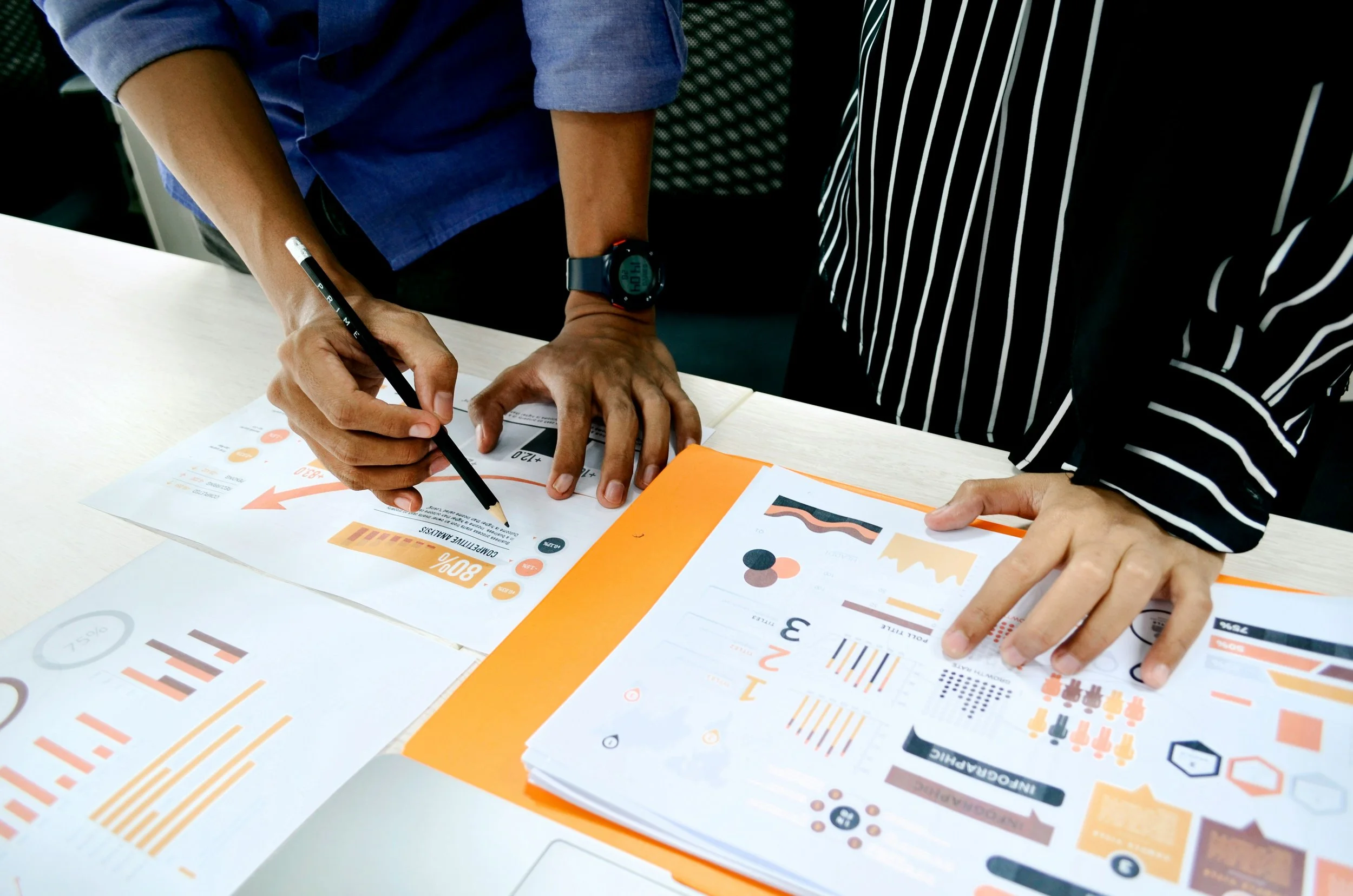Redesigning Financial Clarity
The original home screen of this finance app was overwhelming, cluttered, and difficult to understand. Users struggled to find their monthly balance, identify where they were spending the most, and understand when they were close to exceeding their budgets.
My goal was to redesign the experience to make financial information clearer, more digestible, and easier to act on helping users feel in control rather than confused.
My role
I led the project end-to-end, combining UX Research, UX Strategy, and UX/UI Design.
Analyzed the existing experience, identified user pain points, and defined strategic objectives.
I created the User Persona and Journey to frame the core problems and opportunities.
Redesigned the home structure, hierarchy, and visual system to improve clarity and reduce cognitive load.
Structured the usability testing and iterated the solution based on user insights to deliver a clearer, more intuitive financial experience.
Workflow and Phases
Methods applied
-

Explorative Studies
Uncover user needs and behaviors. Interviewing customers who returned items to understand their expectations, frustrations, and decision-making process during purchase.
-

Quantitative Methods
Validate insights with data. Return Rate Analysis. Analyzing return data segmented by product type, size, and user profile to identify patterns and validate hypotheses about sizing or quality issues.
-

Journey Mapping
Visualize pain points and opportunities. Customer Journey Map Mapping the end-to-end experience from browsing to post-purchase to identify pain points like unclear sizing guides or misleading product photos.
-

Workshops
Co-creation Workshop with Users and Designers. Bringing together frequent returners and the design team to ideate improvements in product presentation, sizing tools, and post-purchase communication.
Pain Points
Cognitive overload The home screen displays too much information without prioritization or clear visual hierarchy.
Difficulty identifying the balance The user needs to spend too much time finding key data such as the monthly balance or spending categories.
Unintuitive breakdown The categories and financial data lack visualizations or groupings that facilitate interpretation.
Poorly visible alerts The system does not clearly communicate when the user is approaching their spending limit; there is a lack of visual consistency and immediate feedback.
Absence of closure and positive reinforcement There is no final summary that creates a sense of control or achievement; the user leaves feeling somewhat frustrated or fatigued.
Key Opportunities
Restructure the visual hierarchy Highlight the main balance at the top and simplify secondary content through groupings and white space.
Improve readability and scanning Use typography, contrast, and colour to guide attention towards relevant information.
Introduce clear visualizations Add bar or pie charts that represent spending by category and monthly trends.
Implement progressive and empathetic alerts Use colour (yellow → red), iconography, and micro-interactions to notify spending limits in an anticipatory and understandable manner.
Provide a more human and motivating closure Include a monthly summary with achievements, personalised tips, and goal-setting options.
"The analysis reveals a need for clarity, hierarchy, and empathetic feedback to enhance user confidence."
Porposal
Home – Overview
We display the available balance as the main focal point.
We group key functions (Bizum, Send, Transactions, More) in a clean upper block.
Sections like Upcoming Charges and Budgets keep the focus on what matters, reducing distractions.
→ We address: the lack of visual hierarchy and information overload.
→ Applied opportunity: prioritise essential information and provide intuitive navigation.
Budgets – Monthly Summary
We introduce a circular gauge to clearly and emotionally visualise the remaining budget.
We use a progressive colour scheme (green → yellow → red) to indicate spending status without the need for additional text.
Positive messages (“Your spending is under control”) reinforce user confidence.
→ We address: the difficulty in identifying balance and the lack of immediate feedback.
→ Applied opportunity: improve readability and provide a more human touch.
Expense Details
We display expenses by categories with differentiated icons and colours, enhancing visual understanding.
We add percentages and totals, helping to easily identify major spending areas.
The clear layout and recognisable icons facilitate visual scanning.
→ We address: the unintuitive breakdown and the difficulty in interpreting information.
→ Applied opportunity: introduce clear visualisations and enhance the analytical experience.
Design Principles Applied
Gestalt principles (proximity, similarity) to group related information.
Visual hierarchy through color, size, and spacing.
Consistency in iconography and structure.
Emotional color palette to convey calm and financial clarity.
Expected Impact
Reduced cognitive load.
Faster understanding of the monthly balance.
Increased interaction with categories and budgets.
Enhanced sense of control and confidence.


